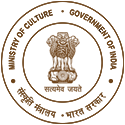Peace Education underlines globalization of compassion and care: Vidya Jain
Gandhi Smriti and Darshan Samiti organized an e-lecture on “Gandhi and Peace Education” on June 17, 2021 in association with Institute of Advanced Studies in Education, Srinagar (IASE). The key-note address was delivered by Dr. Vidya Jain, Convener, Nonviolence Commission, International Peace Research Association. Prof. (Dr) Ruhi Jan Kanth, Principal IASE also spoke on the occasion. The welcome address was delivered by Dr. Vedabhyas Kundu, Programme Officer GSDS. Prof. Fazi Illahi from IASE moderated the session.
The e-lecture began with the address of Prof. Ruhi Jan Kanth who necessitated the need for discourses, dialogues and interconnectedness.
Speaking to about 165 participants, Dr. Vidya Jain said that education is enlargement and enlightenment of mind. She spoke of the qualities of the head, heart and hand which Mahatma Gandhi had advocated while speaking about education and which she said, “Helps in sharpening of critical abilities,” adding, “It is not merely a collection, assimilation of data and so on, but it touches our heart and soul”.
Speaking on peace education, she said, “The greatness of Indian wisdom can be dissipated effectively through introducing Gandhian thoughts on peace education in our curriculum through meticulous planning. But unfortunately it does not happen. We are living in a global village, moving towards the challenges posted by intolerance and fundamentalism. Education has a leading role to prevent terrorism and maintain peace in the global world”.
“Peace education”, she said, “Is a basic obligation in the inculcation of the values of national integration, international understanding and the concept of world citizenship in fostering and keeping peace”.
She added, “The Gandhian concept of education offers a viable solution to the posing problems faced by individual, whereby they can transform themselves from within and re-design the individual, into what Gandhiji had always advocated that ‘Be the change you want to see in the world”.
She felt that such form of education if inculcated right from the primary level will in turn develop desirable changes in the mind set to think and work against violence and terrorism. “Education should develop inner peace in the minds of citizens to inculcate virtues of tolerance and love. Peace education helps to avoid physical violence, political violence, cultural violence and structural violence. It can also help to understand the nature and origins of violence and its effects on both victim & convict and equip with problem solving skills” she underlined.
Dr. Jain while stressing on sustainable individual called for an ethical society where radical changes can occur if a linkage is created between community and society at large. “Restructuring, re-establishing a just society and developing interconnectedness between one another in the frame of I am there for you and you are there for me will work towards universal peace”.
Saying that peace education underlines globalization of compassion and care, Dr. Vidya Jain spoke of Gandhiji’s tireless endeavour for nonviolence and said that “This makes anxious our mind deeply for peace. Gandhiji’s concept will generate a more calm society where all serve as agents for change by creating proper values and attitudes. Peace education is a process of teaching masses about the threats for peace. It promises to generate a commitment to the ways of peace in the human consciousness”.
While speaking about climatic changes, she spoke of the interdependence on one another and said that “We have no right to encroach on the spaces of any species” and underlined the essence of the ‘joy of giving and sharing’.
She further underlined that the diverse culture has to flourish, nurtured and defended and also presented six manifestations for the students such as: “Respect Life”; “Reject Violence”; “Learn to share, care and nurture”; “Listen to understand”; Preserve Climate” and Rediscover solidarity”.
The interactive session saw the participating students engage in a dialogue on conflict resolution, model of development, intellectual debates and discourses with Dr. Vidya Jain.
E-lecture on “Gandhi and Peace Education”
Webinar












